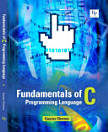Sustainable Zinc Oxide Nanostructures: Fundamentals, Recent Advances, and Applications
Información sobre este eBook
Acerca del autor
Dr. S. Shankar Subramanian is an Assistant Professor in the Department of Physics, University of Delhi, India. He is project investigator of one major research project funded by the Council of Scientific and Industrial Research (CSIR) and co-investigator of two completed research projects funded by University of Delhi. His research areas include multiferroics, magnetoelectrics, composites, and energy storage studies.
Dr. Gaurav Sharma is an Associate Professor in the Department of Applied Physics at Amity University, India. His research primarily focuses on the synthesis and optical properties of materials, as well as high-temperature and high-pressure studies.
Professor Bahadur is a Full Professor in the discipline of Physical Chemistry at North-West University, South Africa. His research areas include ionic liquids, deep eutectic solvents (dess), phase equilibria, thermodynamics, corrosion science, biofuels, biomass, and cellulose. He serves on the editorial advisory boards of several national and international journals and acts as an editor for Elsevier's Journal of Ionic Liquids
Dr. Prashant Singh is a Professor of Chemistry at Atma Ram Sanatan Dharam College, University of Delhi, India. His area of research is finding promising inhibitors against SARS-CoV-2 and CHIKV using molecular docking and molecular dynamics simulations. He also works on the exploration of C-based molecules like GO, and GDY in water remediation and others.




